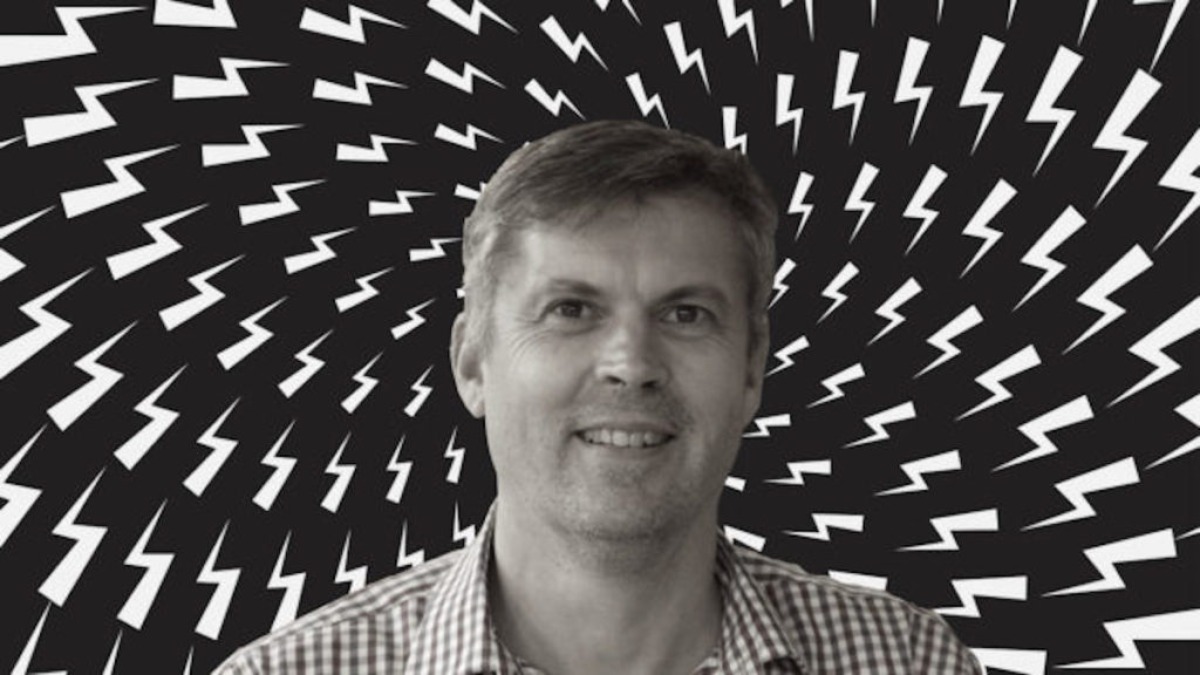Dr Boreham’s Crucible: Bcal scores a diagnostic hat-trick with new cancer blood tests

Bcal’s Breastest is now joined by two proven blood tests for hard-to-detect cancers, reports Tim Boreham (pictured).
What’s better than bringing one diagnostic test to market for a difficult, underserved cancer?
The answer, of course, is two. But how about three?
The developer of a blood-based breast cancer assay, BCAL Diagnostics (ASX:BDX) has scored the trifecta by acquiring the local rights for ovarian and pancreatic cancers, from the California-based Clearnote Health.
“This is a game changer for health outcomes for early diagnosis,” says Bcal founder and executive chair Jayne Shaw.
“Not only have we developed our own breast test and got it to market, but we now have a highly credible US partner”.
Overnight, the partnership has bestowed Bcal with more firepower when dealing with clinicians, regulators and reimbursement agencies.
In April, the company launched its Breastest assay in Sydney and Melbourne, following a “challenging development journey”.
Bcal now hopes to launch the ovarian and pancreatic tests locally, in early 2026.
Clearnote already is selling the tests, called Avantect, in the US and receiving reimbursement.
“The tests have been externally validated across 20,000 samples,” Shaw says.
“They are highly regarded from a published, scientific evidence perspective.”
What’s the problem?
Pancreatic cancer is notoriously fatal, often because it is hard to detect.
In Australia, in 2024, 4,641 pancreatic cancers were diagnosed, with 3,902 fatalities.
Patients normally present when they have symptoms and by then it’s too late.
At stage four, only three% of patients survive to five years, but if detected at stage one, 80% of patients last that long.
Ovarian cancer is diagnosed earlier, but often misdiagnosed. This resulted in 1,786 new local cases in 2023 and 1,050 deaths.
“They are known as the silent cancers,” Shaw says. In both cases, survival is much better when the malady is detected earlier.
The company intends the ovarian test to be available to high-risk women, especially those with the BRCA gene mutation (which also makes them high-risk breast cancer candidates).
Many of these women already may have undergone elective mastectomies.
The Breastest is intended as an adjunct to standard mammograms, which are notoriously uncomfortable. In the case of dense-breasted women – about half the female population – lesions are hard to detect.
The National Breast Cancer Screening Program provides free tests for women aged 50 to 75 years (or 40 years onwards if they show symptoms).
But only about 50% of women avail of the service.
About Bcal
An acronym of Breast Cancer Associated Lipids, Bcal was founded by the Lancashire-born Shaw, who migrated to Australia in 1990.
She became the director of nursing and CEO of two NSW hospitals, where she noticed the poor results for breast cancer patients.
In 2000, she co-founded the eyecare clinic consolidation play Vision Group, which listed on the ASX and eventually was acquired by Chinese interests.
She then invested in the Sydney Breast Clinic, teaming-up with former New South Wales Liberal Party Health Minister Ron Phillips.
After the Sydney Breast Clinic was sold to Healthscope, the duo acquired the intellectual property pertaining to the blood-based tests.
Bcal listed on the ASX on July 19, 2021, having raised $10 million at 25 cents apiece. Some of Bcal’s intellectual property derives from Louisville University.
The company’s chief operating officer since September 2023, Shane Ryan became CEO in April last year.
As a Genesiscare executive, Mr Ryan brought a genomics-based breast cancer test to market in 2021.
Non-executive director Dr David Darling spent 17 years at the ASX-listed Pacific Edge. The company took a bladder cancer test from New Zealand to the US, but then struck reimbursement problems.
Ron Phillips resigned from the Bcal board at the end of August 2025 but remains a major shareholder.
Clearnote
Bcal’s licensing agreement with Clearnote is for an initial period of two years, with an option to extend for a further six years over three two-year terms.
The tests are based on a platform called Virtuoso, which encompasses “advanced [artificial intelligence] and bio-informatics to measure active biological differences between cancer and healthy cells in a blood sample.”
Shaw says the Avantect tests were compared against 23 peers and selected by the US National Cancer Institute for a trial program, called the Vanguard study.
Vanguard stemmed from the Biden administration’s Moonshot project aimed at eliminating cancer.
In the US, the tests are marketed under the CLIA route.
CLIA stands for Clinical Laboratory Improvement Amendments, which are Federal regulations designed to ensure that all US human laboratory testing conforms to the highest standards.
The Avantect tests are approved in the UK.
Bcal intends to send the Australian tests back to the US for processing.
But the company expects to activate its technology transfer arrangement to allow it to perform the tests at its certified laboratory in Sydney’s North Ryde.
The laboratory is endorsed under the local CLIA equivalent, the National Association of Testing Authorities (NATA).
Bcal intends both tests eventually become available to all Australians through the national cancer screening programs.
Breastest the best test?
Breastest is based on lipids: fats that are a source of energy for cell growth. A deregulated lipid metabolism is an early sign of a cell becoming cancerous.
The blood sample is drawn from the patient and matched against a panel of 18 biomarkers “characteristic of the presence of blood cancers”.
As a stepping stone to Therapeutic Goods Administration (TGA) approval, Bcal has been developed as a NATA-approved laboratory-developed assay.
Shaw says Bcal has been ‘reasonably conservative” with its Breastest rollout, confining it initially to the two biggest cities and a small network of specialists and general practitioners.
The test is being sold across eight clinics and 33 breast cancer specialists.
But in August, Bcal partnered with pathology giant Sonic Healthcare, to provide the test at 93 Sydney sites with a view to national distribution.
“We will be talking to them about partnering for the ovarian and pancreatic tests as well,” Shaw says.
The company also has an established partnership with the Sydney Breast Clinic and cancer care network Cancer Care Associates.
The latter creates a direct channel to cancer specialists and high-risk patients.
The company also has a tie-up with Best Practice, which accounts for 80% of Australian GPs’ patient management systems.
Financials and performance
Bcal made token revenue in the year to June 30, 2025, bearing in mind the Breastest had only been on sale for a month (with 107 tests sold).
The company’s main income was a $2.8 million Federal Research and Development Tax Incentive payment.
Bcal reported a $7.24 million loss, compared with a previous $6.4 million deficit.
Shaw says it’s hard to say what a full year of sales would look like with the three tests.
“We are doing that work at the moment and will present the figures at our upcoming AGM” (on November 26).
In June 2024, the company raised $10.5 million in a placement, at 10 cents apiece.
On Monday, Bcal announced a convertible note facility of up to $10 million. The notes mature in two years and incur interest of 10%.
The company has “firm commitments” for $5 million, subject to finalising associated legal documentation.
The facility is subject to shareholder approval at the AGM.
Covered by US Medicare/Medicaid and private insurers, the Avantect tests sell for US$1,160 ($A1,788) each in the US.
Shaw expects the tests will cost around $1,500 in Australia, “with the price reducing over time”.
Locally, the tie-up entails Bcal clipping the ticket in a distributorship model, but ultimately converting to a licencing model when the tests are brought in-house.
In the local market, Bcal has assumed Breastest penetration rates of 10 to 30%, with 20% equating to 400,000 tests and revenue of more than $100 million.
Shaw says the company’s laboratory should be able to do 20,000 tests a year across two mass spectrometer machines (which cost about $500,000 each). This implies revenue of $7 million.
In a report prior to the Clearnote tie-up, Evolution Capital forecast $270,000 of revenue for the year to June 2026, with an $8.2 million loss.
Expected turnover in the 2026-’27 year rises to $670,000, with a $9.7 million deficit.
Over the last 12 months Bcal shares have ranged between 13 cents in mid-February this year, to a record low of five cents on August 25, 2025.
The shares peaked at 21 cents in July 2021, shortly after listing.
Dr Boreham’s diagnosis
Shaw says it’s taken 15 years to develop the Breastest – and the company has made a few mistakes along the way.
One was not to have engaged with clinicians earlier (for fear of upsetting the TGA).
Other parties are developing assays, but Shaw believes Bcal has an unassailable head start.
“It would be challenging for an Australian company to collect 20,000 samples under local protocols.”
While Bcal is focused on the local market, its Breastest would be an obvious add-on to Clearnote’s tests in the US market, where the company has an existing laboratory.
Shaw says the company is looking at a number of partnerships in the US, but it would make sense to hop into bed with Clearnote (which doesn’t have a similar breast test).
“We haven’t formally signed anything, but with such a strong partner in the US it gives you additional local intellectual knowledge around reimbursement and market access.”
Evolution Capital opines the Clearnote deal “materially expands” Bcal’s revenue potential and de-risks its commercial pathway.
“The company will leverage its existing go-to-market infrastructure to roll out the new tests, treating them as a ‘plug-and-play’ offering.”
Despite Bcal’s enhanced prospects, the shares have lost one-third of their value over the last year.
Bcal’s circa $30 million market capitalisation is less than that of the ASX-listed Cleo Diagnostics, which has a yet to be approved ovarian cancer assay.
Meanwhile, Shaw dubs Bcal’s breast test progress as “slow and steady”
“I wanted it to be quicker and faster. But that’s just me – I’m very impatient.”
At a glance
ASX Code: BDX
Share price: 8.5 cents
Shares on issue: 365,967,890
Market cap: $31 million
CEO: Shane Ryan
Board: Jayne Shaw (executive chair), Dr John Hurrell, Jonathan Trollip, Dr David Darling.
Financials (year to June 30, 2025): sales receipts: negligible, net loss $7.2 million (previously $6.4 million deficit), cash balance $4.5 million (down 43%).
Major identifiable shareholders: Capital Property Corp (Carrington Account) 11.7%, Jayne Shaw 9.4%, Ronald Anthony and Ann-Marie Phillips 7.9%, Mera Vale #2 6.94%
Disclosure: Dr Boreham is not a qualified medical practitioner and does not possess a doctorate of any sort. He wouldn’t survive 10 minutes in Shaw’s old stamping ground of England because he is too impatient to queue.
This column first appeared in Biotech Daily.

UNLOCK INSIGHTS
Discover the untold stories of emerging ASX stocks.
Daily news and expert analysis, it's free to subscribe.
By proceeding, you confirm you understand that we handle personal information in accordance with our Privacy Policy.








